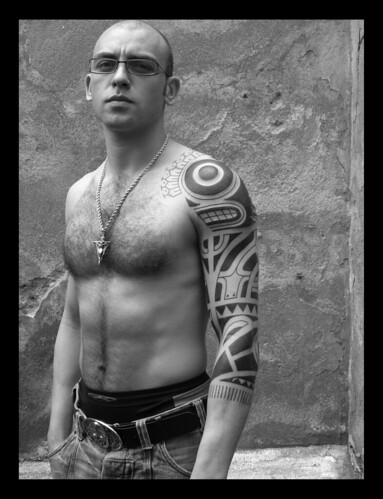Thursday, June 4, 2009
Cultural Polynesian Tribal Tattoo
Tattoos are an ancient art form with origins that trace back as far as the Stone Age (12,000 BCE). . Tattoos have remained popular throughout time and across many cultures and continents. Although most psychological studies of persons with tattoos have been restricted to psychiatric inpatients, prisoners in correctional institutions, and military personnel (thus reflecting only specific populations), one common conclusion is that, of all the motives for obtaining a tattoo, the quest for personal identity is central. The skin serves as a useful canvas on which to portray statements of individuality, sexuality, belonging, machismo, frustration, boredom, and anger. However, the quest for identity by teenagers often becomes irrelevant or embarrassing by age 40 years, and 50% or more of individuals later regret their tattoos.
Egyptian mummies from 4000 BCE show evidence of attempts at tattoo removal. However, since most people live in the present moment, rather than in anticipation of future endeavors, tattoos remain popular. Unpublished data from the Candela Laser Corporation indicate that, in the United States, 9-11% of men have tattoos and 50,000-100,000 women actively pursue tattooing as body art each year. In general, tattoos are not well received by the public and often create a barrier to employment. Individuals with tattoos are often perceived as antisocial, aggressive, or immature and as being unable to accept controls and authority.
Labels:
Tribal Tattoos
Subscribe to:
Post Comments (Atom)









No comments:
Post a Comment